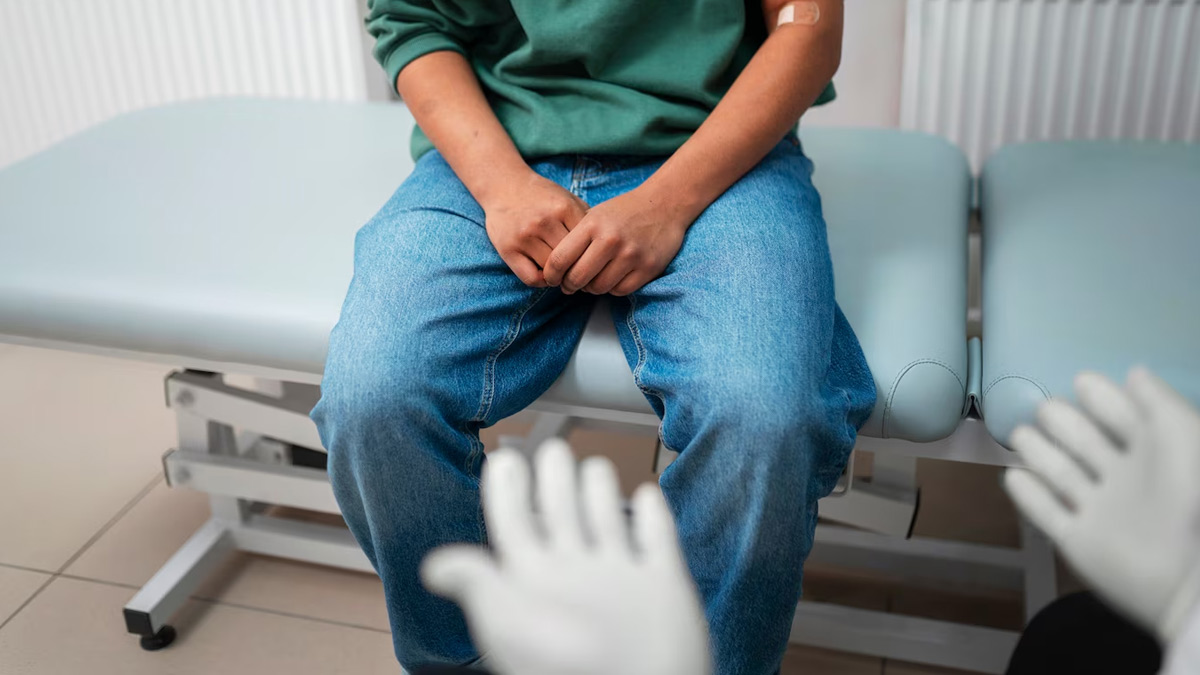
Prostate cancer is a life-threatening disease that occurs when cells in the prostate gland start to grow uncontrollably, forming a tumour. However, many cases of prostate cancer are slow-growing and localised. If caught early, they can be managed with treatments like surgery or radiation.
Table of Content:-
According to Cancer Research UK, almost 100% of patients will survive prostate cancer for five or more years if it is detected in the initial stages. However, if the disease has progressed to a more advanced stage, the survival rate is likely to go down.
For those who do survive prostate cancer, the battle is not fully won. This means that the risk of recurrence will always be present, which is why certain measures need to be taken by survivors.
Also Read: Exercising Improves Colon Cancer Survival; Study Establishes Facts
What Are The Chances Of Recurrence With Prostate Cancer?

Prostate cancer recurrence can happen in 20-30% of survivors. It is when the cancer returns after initial treatment, either in the prostate area or elsewhere in the body. It is often detected through a rising Prostate-Specific Antigen (PSA) level (biochemical recurrence) or through imaging scans.
Some of the common risk factors for prostate cancer recurrence include:
- Higher grade (aggressive) and stage (advanced) of cancer at diagnosis
- Lymph node involvement during initial diagnosis
- Larger tumours that go beyond the prostate gland
- Rising PSA levels after treatment
How To Reduce The Risk Of Recurrence After Prostate Cancer Treatment?

In an interaction with the OnlyMyHealth team, Dr Shashank M S, Consultant - Urology and Renal Transplant, Aster CMI Hospital, Bengaluru, suggests that there is currently no specific medication or therapies to prevent prostate cancer or its recurrence; however, several options are being explored to reduce its risk. "One of the most discussed approaches involves the use of 5-alpha-reductase inhibitors, such as finasteride and dutasteride, which have shown potential in reducing the risk of developing prostate cancer by lowering levels of dihydrotestosterone (DHT), a hormone linked to prostate growth."
Additionally, certain lifestyle and dietary modifications may also contribute to a lower risk of prostate cancer.
Lifestyle changes:
- Engaging in regular physical activity, as studies have shown that exercise can improve overall health, enhance mood, and potentially reduce cancer recurrence rates.
- Maintaining a healthy weight, as obesity has been linked to poorer outcomes in cancer survivors.
- Managing stress through mindfulness practices, such as yoga or meditation.
- Regular follow-up appointments with healthcare providers for monitoring and early detection of any changes.
Dietary modifications:
Dr Shashank says, “The role of diet and exercise in maintaining health after prostate cancer treatment is significant. Research indicates that a balanced diet rich in fruits, vegetables, whole grains, and lean proteins can enhance overall well-being and potentially reduce the risk of cancer recurrence.”
Therefore, eating a balanced diet rich in fruits, vegetables, whole grains, and lean proteins is also essential; specific foods, such as tomatoes, broccoli, and fatty fish, may offer protective benefits due to their high levels of antioxidants and omega-3 fatty acids.
“Nutritional choices may also help manage treatment-related side effects, such as fatigue and weight gain, which can impact quality of life,” he adds.
Importance Of Follow-Up Screenings

Cancer is a life-changing disease, and it is considered so for a reason. Even if you survive it, you must continue being vigilant and notice any changes that reoccur. Therefore, following up with your doctor about your health is crucial post-treatment.
“The necessity of follow-up screenings for prostate cancer is a topic of considerable importance, particularly for individuals who have been diagnosed or are at high risk,” highlights Dr Shashank, adding that these screenings help monitor the progression of the disease, assess the effectiveness of treatment, and detect any potential recurrence.
He adds, “The frequency of these screenings can vary based on several factors, including the patient's age, overall health, initial PSA levels, and the specifics of their cancer diagnosis.” Generally, men who have been treated for prostate cancer may undergo follow-up screenings every 3-6 months for the first few years, transitioning to annual screenings thereafter if their PSA levels remain stable.
Dr Shashank emphasises that patients should engage in discussions with their healthcare providers to establish a personalised screening schedule that aligns with their unique circumstances and medical history, ensuring that any changes in their condition are promptly addressed.
Warning Signs That Prostate Cancer May Be Returning
While consulting a doctor and going for regular follow-up is crucial post prostate cancer treatment, it is also important to be aware of the warning signs that may signal a recurrence. Here are some symptoms to watch out for:
- Rise in PSA levels, which may suggest that cancer cells are re-emerging.
- Changes in urinary habits, such as increased frequency, urgency, or difficulty in urination, which can indicate that the cancer is affecting the prostate or surrounding tissues.
- New or worsening pelvic pain, discomfort in the lower back
- Unexplained weight loss
Dr Shashank advises, “It is crucial for patients to maintain regular follow-up appointments and communicate any concerning symptoms to their healthcare team, as early detection of recurrence can significantly impact treatment options and outcomes.”
Conclusion
Fighting prostate cancer and defeating it is no small feat. However, the journey doesn’t end there. Life after treatment is about staying one step ahead. While there’s no proven way to stop the cancer from coming back, simple everyday choices can make a real difference. Eating well, staying active, managing stress, and showing up for your regular check-ups all can make a difference. As Dr Shashank says, catching any signs of recurrence early can open up more treatment options and improve outcomes. So take care, stay mindful, and give your health the same attention it deserves post-treatment as you did during.
Also watch this video
Read Next
Chemobrain: Expert Explains The Cognitive Fog That Lingers In Cancer Patients Long After Treatment
How we keep this article up to date:
We work with experts and keep a close eye on the latest in health and wellness. Whenever there is a new research or helpful information, we update our articles with accurate and useful advice.
Current Version
